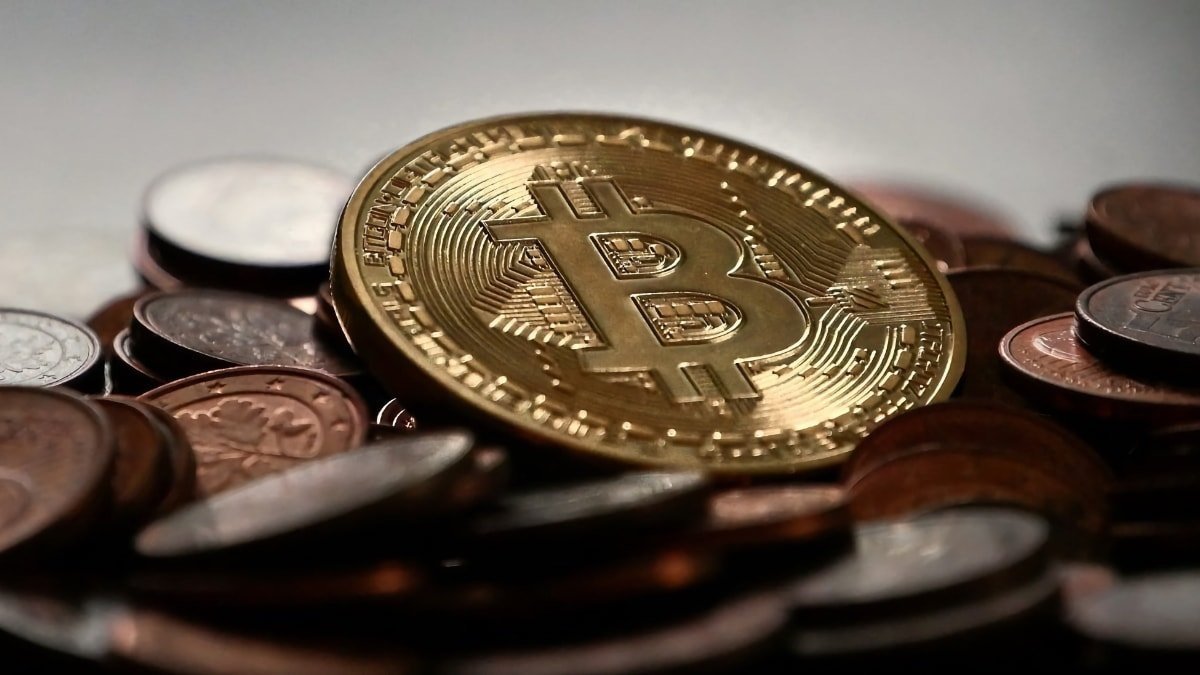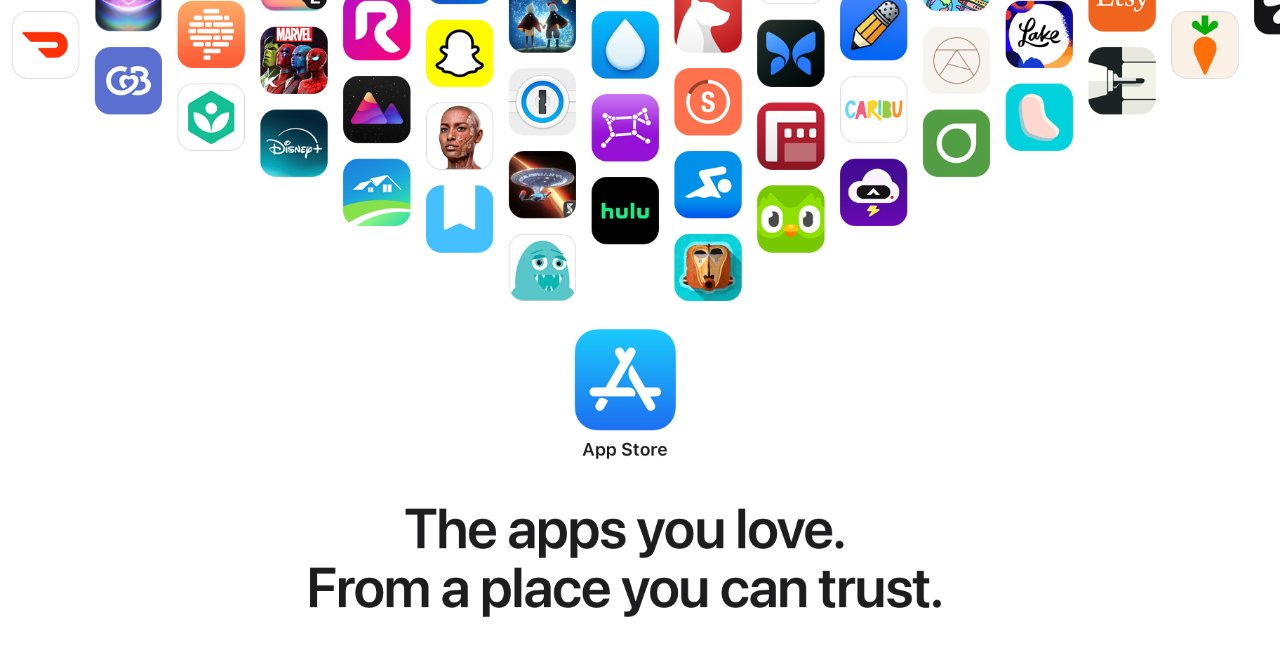Latest App Store crypto lawsuit tries to blame Apple for bad user decisions
An App Store user is suing Apple because she was duped by a fake cryptocurrency app, neglecting her own role in her choosing to send money to fairly obvious criminals.

Representations of cryptocurrencies
No question, Apple's app review team has had failures before. It appears, too, that this new lawsuit is evidence of another one, even as it follows the company's boasting that it protected users from $9 billion in fraud in the last five years.
Both statements can be true at the same time. That hasn't dissuaded a complainant in a suit from blaming Apple because she chose to send money to a crypto scam.
Danyell Shin has filed a class action suit against Apple in the Northern District Court of California, saying that the company "authorized and maintained malicious applications in its App Store that allowed the theft of personal financial assets."
Shin maintains that because Apple claims that App Store apps are safe and secure, she bought an iPhone and downloaded a crypto currency app going by the name Swiftcrypt. "Subsequently, after following instructions contained in the apps to deposit funds, and after what appeared to be legitimate trades and growth of their funds," says the full court filing, "their accounts were frozen and all the money they invested was stolen in a cryptocurrency investment scam known as 'pig butchering.'"
According to the filing, Shin says she had been educating herself regarding stock investments, and at some point in 2024, joined an online discussion group. It appears that the leader of this group encouraged members to download Swiftcrypt and begin trading, although presumably did not provide a link to the legitimate version.
Shin ultimately lost approximately $80,000 to the app. She now blames Apple instead of the fraudsters, both because of the fraud and because in some way she "also overpaid for her iPhone."
This part of the claim ridiculously continues with the explanation that Shin would have paid less for the iPhone if Apple had disclosed that this app was fraudulent.
It's unclear from the filing whether the app was a fake duplicate of a legitimate crypto currency app, or whether the allegation is that Swiftcrypt is fraudulent. While Swiftcrypt has received positive reviews from sites appearing to offer financial advice, it is no longer on the App Store and its official site has closed down.
Shin's suit is a class action one based on the presumption that others will have believed Apple's advertising about App Store security. The suit does not appear yet to have any other members of her online investment group, and it's not clear if any of those members are suing Google over the Android version.
This suit appears to be the only case Shin has filed, meaning that she is seemingly not suing the leader of the group who recommended the download, nor any corporate officers of Swiftcrypt.
As is generally the situation with cases like this, she appears to be suing Apple because they have money.
Caveat emptor
Anyone can be fooled by fraud, and it is in the interests of fraudsters to be convincing. But according to her LinkedIn profile, Shin is a marketing and communications professional, and claims to have been studying investments including crypto currency.

Apple does claim that its App Store is trustworthy
Given that the apps were recommended by an online advisor she did not know, Shin should have at least Googled Swiftcrypt, and it's clear at the very least that she didn't effectively do any research. A search now, confined to the dates she would have been buying the app, does return one positive review, but also several questioning whether it is a scam.
According to that search, the app remains on the Google Play Store and has no reviews at all -- despite claiming to have been downloaded over 10,000 times. The app has a support site, but not at what was previously its official address -- and is a suspiciously barebones single page.
And it was barren then too.
In other words, there was plenty of evidence to have Shin doubt the app. It doesn't appear that she was suspicious of it, though it's not clear how often this group leader kept vouching for it. Conceivably she did ask questions, but as you'd expect given the nature of the internet, we couldn't find any public record of her doing so.
Nonetheless, she downloaded the app without doing anything like sufficient or reasonable checks. And then she sent the fraudsters money, willingly.
When you walk into a store, you don't buy the moldy lettuce, just because it's in Whole Foods and must be good. You pick and choose what you prefer after you've examined the lettuce from what the store has curated for you. You don't buy a M4 Max Studio for $100 from an eBay seller with zero feedback and an account made yesterday.
And you don't buy crypto from a place with one recommendation and dozens of negative ones.
That said, there was also plenty of evidence that Apple should have doubted it, too.
Fraudulent apps are going to get more prevalent, not less
On the face of it, if Shin's allegations are correct, then Apple failed to prevent a fraudulent app getting onto the App Store. And it did so while the App Store remains entirely under its control in the US.
Apple no longer has the sole App Store for iPhones in the EU, and it looks certain that it will be forced to allow third-party stores worldwide.
It's of course in Apple's interest to hold on to its own App Store, but the company has long also argued that the alternative is a privacy and security issue for users. Back in 2021, for instance, Craig Federighi described the ability to load other apps onto the iPhone as a "gold rush for cybercriminals."
The only thing more certain than third-party app stores are coming is that there will be more fraud because of even less curation. And the only thing more certain than this, is that Apple will be sued for it, even if an app is hosted on a third-party app store.
Apple will be sued because people will not distinguish between different providers. And because few other providers, and certainly not online financial group leaders, will have as much money as Apple does.
Read on AppleInsider

Comments
Crypto, Bitcoin, and other variations are scams. The only positive outcome is that companies like Apple may distance themselves from it, and this should apply to all gambling/sport betting apps. Ultimately, the company at the top of the pyramid, whose name appears on the device/app store, will get the blame because the public ultimately has tunnel vision.
This same scenario will apply to those independent app-stores like Epic when it’s time for a refund because the kid bought too many V Bucks. The blame will be put on (Apple).
and show the EU that they’re more vigilant in preventing issues like this than 3rd party app stores. Instead, they’ve allowed betting apps in the store which is something more than likely Steve would have never approved of.